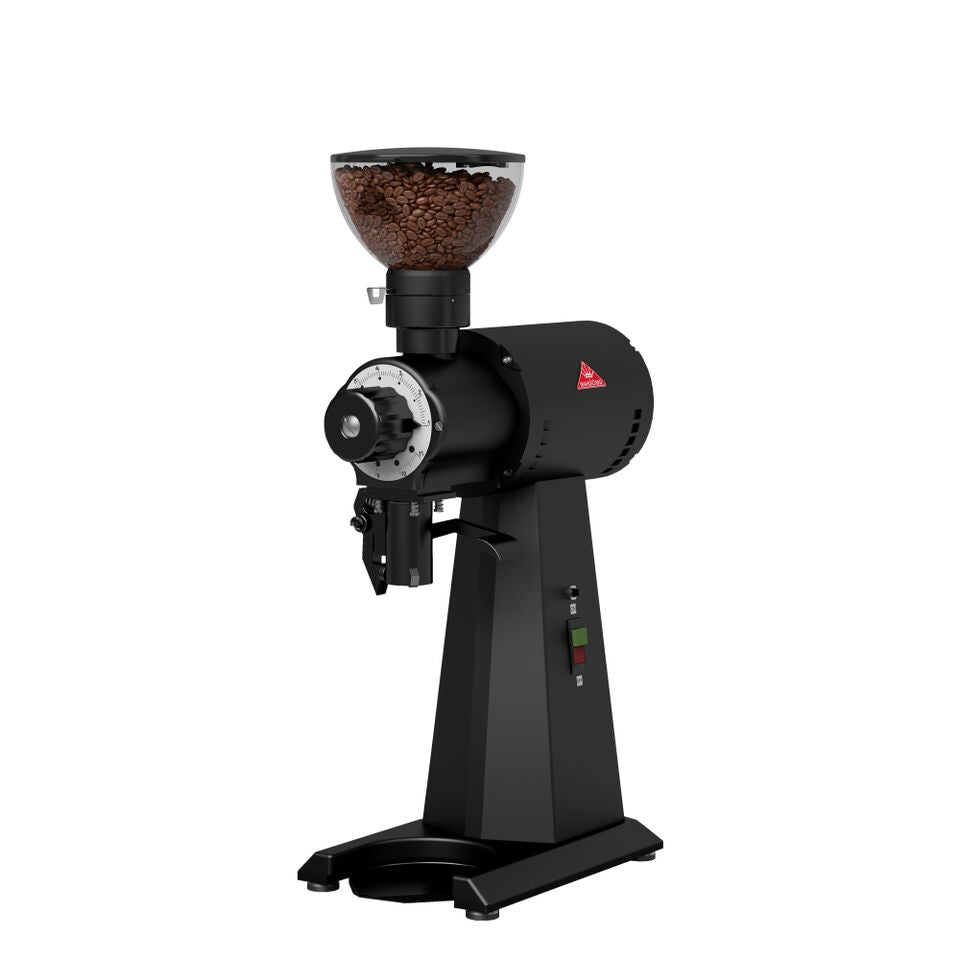Maximize Efficiency with an Industrial Coffee Grinder in Your Business
Maximize Efficiency with an Industrial Coffee Grinder in Your Business
Blog Article
Industrial Coffee Mill Guide: Increase Effectiveness and High Quality
In the affordable landscape of coffee manufacturing, picking the ideal commercial coffee mill plays a pivotal duty in boosting both efficiency and item top quality. Understanding the nuances of different mill types and vital functions-- such as adjustable grind settings and robust construction-- can substantially affect the final taste profile of the coffee.
Recognizing Mill Kinds
When picking a commercial coffee grinder, recognizing the different kinds readily available is crucial for enhancing both taste extraction and operational efficiency. Both main sorts of grinders are blade grinders and burr grinders. Blade grinders make use of sharp blades that chop coffee beans right into inconsistent dimensions, causing unequal removal and possibly unwanted tastes. While blade grinders are typically a lot more suitable and inexpensive for small-scale procedures, they are normally not recommended for industrial usage.

Eventually, picking the ideal type of mill is important to preserving quality and performance in coffee manufacturing, making it necessary for companies to buy premium burr grinders for optimum results.
Secret Attributes to Think About
Picking a commercial coffee grinder requires careful factor to consider of numerous vital functions that can dramatically affect both performance and the overall coffee experience. One of the key aspects to review is the grinding device. Burr mills are typically favored over blade grinders, as they offer a consistent grind dimension, which is critical for optimum removal and flavor.
Another vital attribute is the grinder's capability. Depending upon the quantity of coffee you need to process, pick a version that can manage your requirements without giving up rate or top quality. Additionally, consider the work setups supplied. A versatile grinder with multiple settings enables you to tailor the grind size to various developing techniques, improving the coffee's taste account.
Examine the mill's noise degree, specifically in a busy café or production atmosphere, where extreme sound can be turbulent. Investing in a mill that balances these features can considerably improve both operational effectiveness and the top quality of the coffee served.
Optimizing Grinding Process
To accomplish the finest outcomes in coffee prep work, maximizing the grinding procedure is necessary. The grind dimension substantially influences removal, taste, and total high quality of the made coffee. Different developing techniques require details grind sizes; as an example, espresso demands a fine grind, while French press necessitates a crude structure. Comprehending the partnership between grind you can try this out dimension and developing approach is the very first step in optimization.


Furthermore, keeping track of the grinding speed can maximize the procedure. Slower grinding often creates much less heat, maintaining delicate flavors and scents. On the other hand, faster grinding may produce too much warm, adversely impacting the coffee's high quality.
Upkeep and Treatment Tips
Appropriate upkeep and treatment of industrial coffee mills are crucial for guaranteeing ideal performance and longevity. Normal cleansing is the foundation of maintenance; deposit build-up can impact flavor and grinding effectiveness. It is suggested to clean up the mill after each use, cleaning down the exterior and removing any type of coffee grounds from the burrs.
Furthermore, examine the grinding burrs for deterioration. Plain burrs can endanger work uniformity, so they need to be changed as needed. Industrial Coffee Grinder. Occasionally calibrating the mill is additionally vital, as this keeps the preferred grind dimension for various developing approaches
Lubrication of relocating parts should be done according to the supplier's requirements, as this lowers rubbing and prolongs the life of the equipment. It is vital to make use of food-grade lubricants to make certain security and conformity with wellness guidelines.
Lastly, maintain the mill in a dry and secure environment to protect against corrosion and corrosion. By sticking to these upkeep and treatment pointers, drivers can improve the performance of their industrial coffee grinders while making certain high-quality output and expanded functional life.
Return on Investment Evaluation
Reviewing the return on investment (ROI) for commercial coffee grinders is vital for services seeking to enhance their coffee manufacturing abilities. A comprehensive ROI analysis aids determine the monetary viability of buying top quality grinders, permitting companies to evaluate the preliminary costs versus possible gains.
Analyze the purchase price of the grinder, consisting of setup and any kind of essential modifications to existing infrastructure. High-performance grinders usually lead to lowered grinding time and increased throughput, which can significantly boost productivity.
In addition, consider the influence on product visite site top quality. Industrial Coffee Grinder. Superior mills produce an even more constant grind size, which can enhance taste profiles and client complete satisfaction, ultimately driving sales. By increasing the quality of the final product, services can justify higher prices, leading to boosted profits
Conclusion
In recap, a commercial coffee mill plays a crucial duty in enhancing both efficiency and product top quality within coffee production. Eventually, the calculated investment in a dependable grinder contributes significantly to enhanced income and competition in the coffee sector.
In the affordable landscape of coffee manufacturing, picking the best commercial coffee grinder plays a critical duty in enhancing both effectiveness and product quality. The 2 main types of mills are blade mills and burr mills. Within the burr mill category, there are flat burr grinders and cone-shaped burr mills, each with its benefits. Burr grinders are typically chosen over blade mills, as they supply a regular grind dimension, which is crucial for ideal removal and taste.
In recap, an industrial coffee grinder plays a crucial role in enhancing both efficiency and item top quality within coffee manufacturing.
Report this page